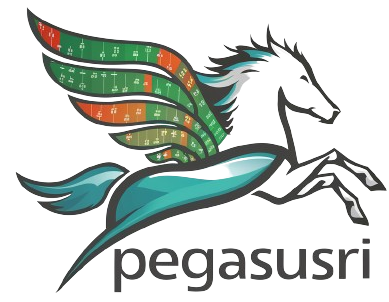Introduction to Investing in Yourself
Investing in yourself is one of the most important decisions you can make for your personal growth and future success. It encompasses a wide range of strategies that focus on improving your mental and physical health, developing your skills and knowledge, cultivating meaningful relationships, and making smart financial choices. By prioritizing self-investment, you can unlock your full potential and pave the way for a more fulfilling life.
What Does It Mean to Invest in Yourself?
Investing in yourself means making a conscious effort to improve various aspects of your life, including your health, career, relationships, and personal interests. It involves identifying areas where you can grow and develop, and then taking steps to make positive changes. This can include pursuing education, developing new skills, taking care of your physical and mental well-being, and making smart financial decisions.
Why Investing in Yourself is Important
Investing in yourself is crucial because it lays the foundation for a better future. By continuously learning, growing, and improving, you can increase your value in the workplace, build stronger relationships, and achieve greater personal satisfaction. Moreover, investing in yourself helps you develop resilience, adaptability, and confidence, which are essential qualities for navigating life’s challenges and seizing opportunities.
1. Prioritize Your Mental and Physical Health
Your mental and physical health are the cornerstones of your overall well-being. Without a healthy mind and body, it becomes difficult to pursue other aspects of personal growth. Therefore, prioritizing self-care is a fundamental way to invest in yourself.
Mental Health: Practices and Benefits
Maintaining good mental health involves engaging in practices that promote emotional well-being, reduce stress, and foster a positive mindset. This can include activities such as meditation, journaling, therapy, and spending time in nature. By prioritizing mental health, you can improve your mood, increase your resilience, and enhance your overall quality of life.
Physical Health: Exercise and Nutrition
Investing in your physical health means making healthy lifestyle choices, such as regular exercise, balanced nutrition, and sufficient sleep. Engaging in physical activity not only improves your fitness levels but also boosts your mood and cognitive function. Additionally, fueling your body with nutritious foods provides the energy and nutrients needed for optimal health and performance.
2. Continuous Learning and Skill Development
In today’s rapidly evolving world, continuous learning and skill development are essential for personal and professional growth. By expanding your knowledge and acquiring new skills, you can increase your value in the job market, open up new opportunities, and stay relevant in your field.
Formal Education and Certifications
Pursuing formal education, such as a degree or professional certification, can be a valuable investment in yourself. It not only enhances your knowledge and expertise but also demonstrates your commitment to your career and personal development. Higher education and certifications can lead to better job prospects, increased earning potential, and greater job satisfaction.
Online Courses and Workshops
In addition to formal education, there are numerous opportunities for learning through online courses and workshops. These flexible and often affordable options allow you to acquire new skills and knowledge at your own pace. From coding and digital marketing to creative writing and personal finance, there are courses available on virtually any topic that interests you.
3. Cultivate Relationships and Networking
Building and maintaining strong relationships is a crucial aspect of personal growth. Cultivating connections with others not only provides emotional support and a sense of belonging but also opens doors to new opportunities and experiences.
Building a Professional Network
Networking is essential for career advancement and professional growth. By attending industry events, joining professional organizations, and connecting with colleagues and mentors, you can expand your professional network and gain valuable insights and advice. A strong network can lead to job opportunities, collaborations, and personal referrals.
Maintaining Personal Relationships
Investing in personal relationships is equally important for your well-being and growth. Nurturing connections with family, friends, and loved ones provides a support system that can help you navigate life’s challenges and celebrate your successes. Building and maintaining meaningful relationships requires time, effort, and emotional intelligence, but the rewards are invaluable.
4. Seek Mentorship and Professional Guidance
Seeking guidance from experienced individuals is a valuable way to invest in your personal and professional development. Mentors can provide insights, advice, and support as you navigate your career path and make important decisions.
Finding the Right Mentor
Finding the right mentor involves identifying someone whose experience and expertise align with your goals and aspirations. This can be a senior colleague, industry expert, or someone you admire for their accomplishments. Reach out to potential mentors, express your interest in learning from them, and be prepared to invest time and effort into the relationship.
Benefits of Mentorship
Having a mentor can greatly accelerate your personal and professional growth. Mentors can provide guidance on specific challenges, offer constructive feedback, and help you develop key skills and qualities. They can also introduce you to valuable connections and opportunities, and serve as a sounding board for your ideas and decisions.
5. Financial Literacy and Planning
Financial literacy and planning are essential components of investing in yourself. By understanding financial concepts and making informed decisions, you can secure your financial future and achieve your personal and professional goals.
Understanding Financial Products
Familiarizing yourself with various financial products, such as 401(k) plans, IRAs, and Roth IRAs, can help you make smart choices when it comes to saving for retirement. Understanding the differences between these options, their tax implications, and contribution limits can help you maximize your long-term savings and investments.
Setting and Achieving Financial Goals
Setting clear financial goals is crucial for effective financial planning. Whether it’s saving for a down payment on a house, paying off student loans, or building an emergency fund, having specific, measurable, and time-bound goals can help you stay motivated and on track. Creating a budget, tracking your expenses, and automating your savings can help you make steady progress towards your financial objectives.
6. Establish an Emergency Fund
Having an emergency fund is a critical aspect of financial security and self-investment. An emergency fund is a savings account that serves as a financial safety net, providing a cushion for unexpected expenses or income disruptions.
Why You Need an Emergency Fund
Life is unpredictable, and financial emergencies can happen to anyone. Whether it’s a job loss, medical emergency, or car repair, having an emergency fund can help you weather financial storms without resorting to high-interest debt or compromising your long-term financial goals. An emergency fund provides peace of mind and financial stability during challenging times.
How to Build an Emergency Fund
Building an emergency fund requires consistent effort and discipline. Financial experts generally recommend saving enough to cover three to six months’ worth of living expenses. To start building your emergency fund, set a goal, create a budget, and automate your savings. Consider opening a high-yield savings account or money market account to earn interest on your emergency fund while keeping the money easily accessible.
| Emergency Fund Savings Options | Key Features |
|---|---|
| High-yield Savings Account | Higher interest rates than traditional savings accounts, FDIC-insured |
| Money Market Account | Higher interest rates, limited monthly transactions, FDIC-insured |
| Certificate of Deposit (CD) | Fixed interest rate for a set term, penalties for early withdrawal, FDIC-insured |
7. Engage in Hobbies and Creative Pursuits
Investing in yourself isn’t just about work and finances; it’s also about pursuing activities that bring you joy and fulfillment. Engaging in hobbies and creative pursuits can enhance your overall well-being, reduce stress, and provide a sense of accomplishment.
Finding a Hobby That Suits You
Finding a hobby that resonates with you involves exploring your interests and passions. Whether it’s painting, gardening, playing an instrument, or learning a new language, choose an activity that genuinely excites and challenges you. Don’t be afraid to try new things and step out of your comfort zone; you might discover a hidden talent or a new source of joy.
Benefits of Creative Activities
Engaging in creative activities has numerous benefits for your mental and emotional well-being. Creative pursuits can provide a healthy outlet for self-expression, boost your self-esteem, and foster a sense of accomplishment. They can also help you develop new skills, think outside the box, and approach challenges with a fresh perspective.
8. Invest in Productivity-Enhancing Tools
Investing in tools and technologies that enhance your productivity can have a significant impact on your personal and professional growth. By streamlining your work processes and maximizing your efficiency, you can free up time and mental energy for other important aspects of your life.
Tools for Better Time Management
Effective time management is crucial for productivity and work-life balance. Investing in tools such as calendars, task managers, and time-tracking apps can help you prioritize your tasks, set realistic deadlines, and avoid procrastination. By managing your time more effectively, you can reduce stress, increase your output, and create more space for personal pursuits.
Technology and Apps for Productivity
In addition to time management tools, there are numerous technologies and apps designed to enhance productivity in various aspects of life. From note-taking apps and project management software to meditation and fitness apps, these tools can help you stay organized, focused, and motivated. Investing in the right productivity-enhancing tools can streamline your workflows, improve your communication, and support your overall well-being.
9. Balance Current Spending with Future Savings
Achieving a balance between current spending and future savings is a key aspect of investing in yourself. While it’s important to enjoy the present and meet your immediate needs, it’s equally crucial to plan for the future and ensure long-term financial stability.
Creating a Balanced Budget
Creating a balanced budget involves allocating your income towards both short-term expenses and long-term savings goals. Start by tracking your income and expenses, and then identify areas where you can cut back on unnecessary spending. Prioritize essential expenses, such as housing, food, and healthcare, while also setting aside money for savings and investments.
Avoiding Burnout Through Financial Planning
Financial stress and burnout can have a detrimental impact on your overall well-being. By creating a solid financial plan and sticking to it, you can alleviate financial worries and prevent burnout. This involves setting realistic financial goals, creating an emergency fund, and investing in your future through retirement accounts and other long-term savings vehicles.
10. Monitor Your Credit and Finances
Regularly monitoring your credit and finances is an important aspect of self-investment. By staying informed about your financial health, you can make proactive decisions, identify potential issues, and protect your long-term financial well-being.
Importance of Credit Monitoring
Your credit score and credit report play a significant role in your financial life. They influence your ability to secure loans, rent an apartment, and even land certain jobs. By regularly monitoring your credit, you can ensure the accuracy of your credit report, identify potential fraud or errors, and take steps to improve your credit score.
Tools for Tracking Finances
There are various tools available to help you track your finances and stay on top of your financial health. These include budgeting apps, personal finance software, and online banking platforms. By utilizing these tools, you can monitor your spending, track your investments, and receive alerts about unusual activity on your accounts. Regularly reviewing your finances can help you make informed decisions and adjust your financial strategies as needed.
Conclusion: The Long-term Benefits of Investing in Yourself
Investing in yourself is a lifelong journey that yields numerous benefits for your personal and professional growth. By prioritizing your mental and physical health, continuously learning and developing skills, cultivating meaningful relationships, and making smart financial choices, you can unlock your full potential and lead a more fulfilling life.
Summary of Key Strategies
Throughout this article, we’ve explored various strategies for investing in yourself, including:
- Prioritizing mental and physical health through self-care practices
- Pursuing continuous learning and skill development
- Cultivating relationships and networking
- Seeking mentorship and professional guidance
- Developing financial literacy and planning
- Establishing an emergency fund
- Engaging in hobbies and creative pursuits
- Investing in productivity-enhancing tools
- Balancing current spending with future savings
- Monitoring credit and finances
Encouragement to Start Today
Investing in yourself is a powerful choice that can transform your life. It requires effort, discipline, and a willingness to step out of your comfort zone, but the rewards are immeasurable. Start small, set achievable goals, and celebrate your progress along the way. Remember, every step you take towards personal growth is an investment in your future happiness and success. So, start today and embrace the lifelong journey of investing in yourself.
See also:






